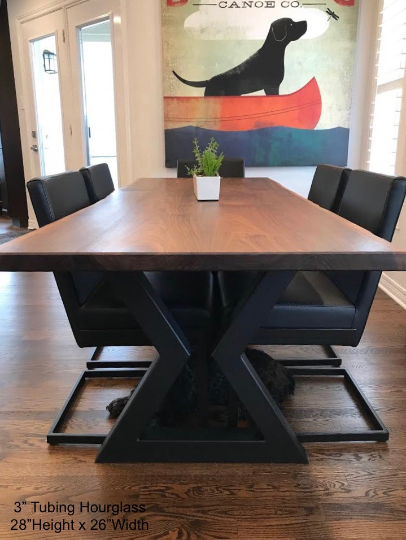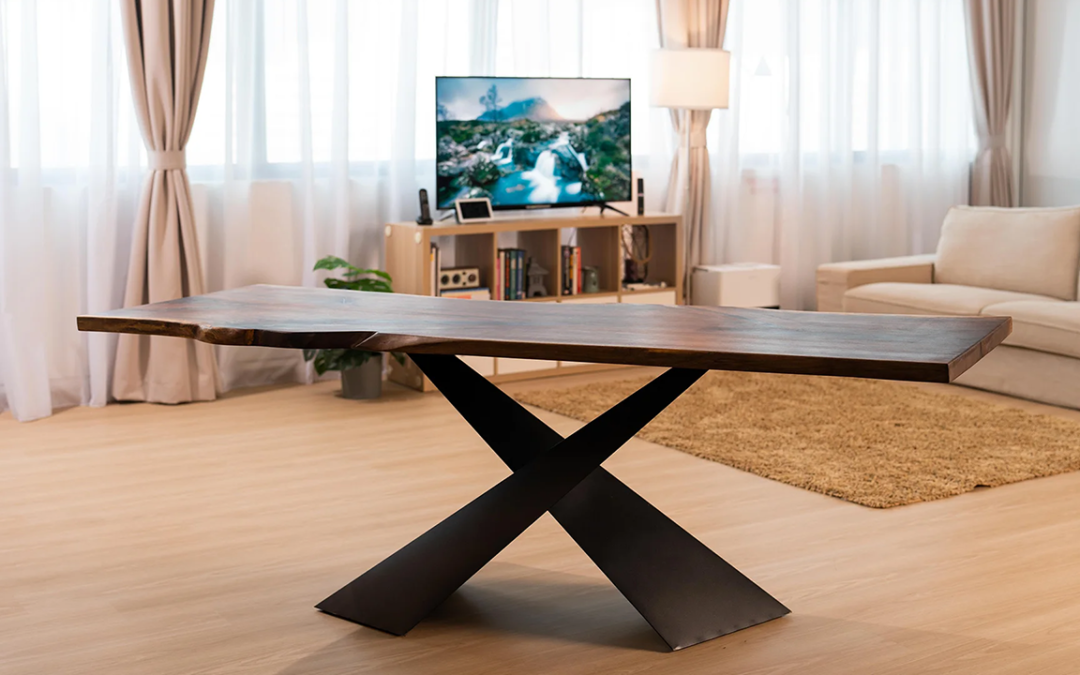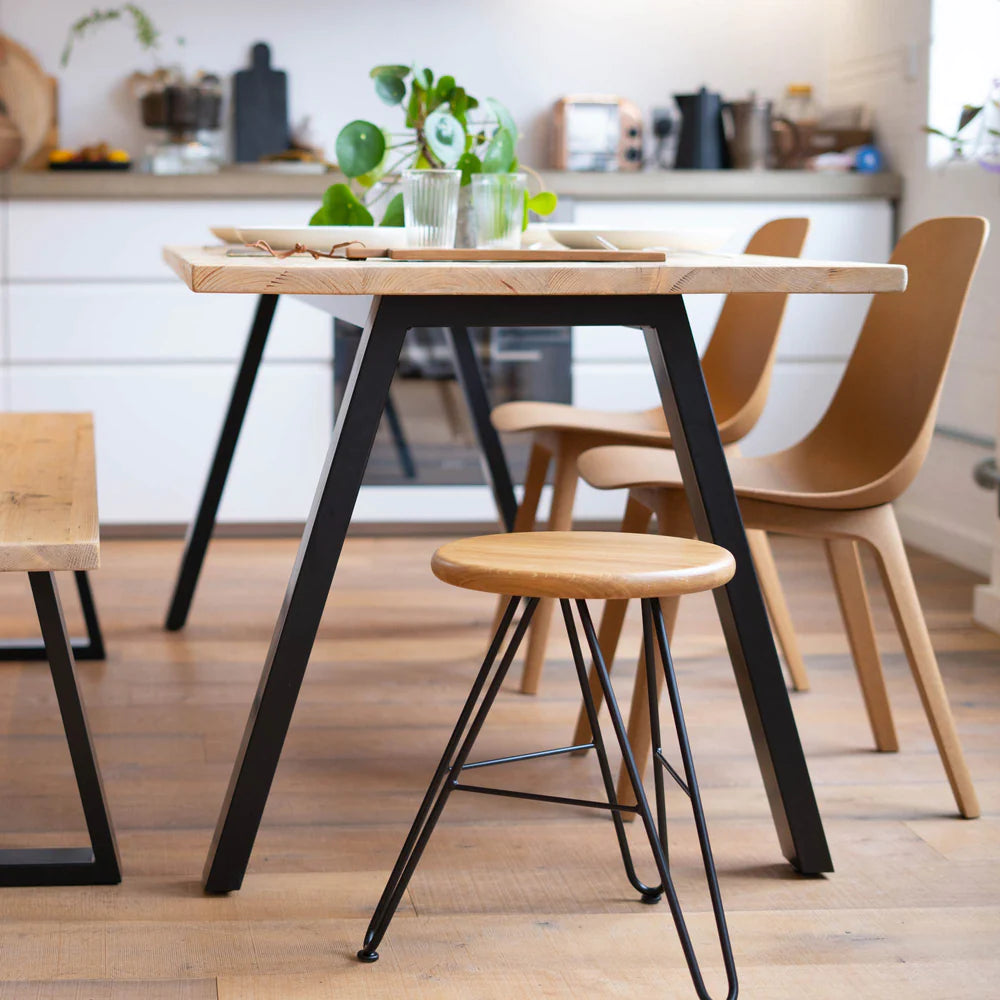Table Legs: Just How to Select the most effective Designs for Your Area
Selecting the ideal dining table legs is essential for both visual and functional consistency in your dining area. Whether your area boasts a streamlined, modern ambiance or leans in the direction of a much more traditional atmosphere, the design of the legs can considerably affect the overall look. Conical legs exhibit modern elegance, while transformed legs offer a nod to traditional beauty.
Evaluating Your Dining-room Style
Just how do you determine the very best table legs for your room? The answer begins with an extensive analysis of your eating area design. A natural layout ensures that your table legs enhance the overall visual as opposed to encounter existing elements. Start by observing the architectural attributes of your dining room. Exist popular qualities such as subjected beam of lights, complex moldings, or minimal lines? These information commonly determine whether a typical, rustic, modern, or commercial design is most ideal.
Following, think about the existing furniture and decor. The products, shades, and structures within the room play a crucial role. An eating room with streamlined, contemporary chairs and metallic accents might benefit from simple, structured table legs. On the other hand, a space filled up with classic items and rich textiles may ask for elaborate, carved legs.
Large, open dining areas can accommodate heavier, a lot more significant legs, whereas smaller spaces require more fragile, inconspicuous layouts. By carefully examining these variables, you can pick dining table legs that harmoniously blend with your dining space's style.
Popular Leg Styles Discussed

One common style is the tapered leg, renowned for its streamlined, modern appearance. Next off, the turned leg functions detailed spindle-like designs, commonly found in conventional and farmhouse setups.
Cabriole legs, with their unique contours, are synonymous with French Provincial and Queen Anne furniture. Their stylish, moving lines bring a sense of elegance and historic beauty (dining room table legs). For those preferring a robust and straightforward style, square legs give sturdy support and a tidy, geometric look, perfect for commercial or minimalist spaces
Finally, barrette legs supply a retro, mid-century modern-day vibe. Made from metal, these legs are both lightweight and strong, adding a special aesthetic comparison to wood table tops. Recognizing these designs will certainly guide you in selecting table legs that enhance your area's visual and capability.
Product Factors To Consider

Timber is a classic choice, recognized for its warmth and adaptability. It comes in different species such as oak, walnut, and maple, each offering special grain patterns and shades. Metal legs, usually made from stainless-steel, iron, or aluminum, provide a contemporary and industrial appearance while making certain robust support. They are commonly much more immune to put on Recommended Reading and tear, making them a resilient option.

Other products like bamboo or rattan provide environmentally friendly alternatives, bringing a natural and loosened up ambiance to the eating area. Each product has its benefits and drawbacks, and the most effective option will rely on your details demands and choices.
Balancing Visual Appeals and Capability
Attaining the best equilibrium between appearances and performance is crucial when selecting table legs. While the aesthetic appeal of table legs can substantially improve the total atmosphere of an eating area, their practical facets can not be overlooked. The design of the legs have to harmonize with the area's decor, yet they need to also offer sufficient assistance and security for the table.
Think about the architectural style of your space. Sleek, modern-day interiors may gain from minimal, metal legs that provide a clean and inconspicuous appearance. On the other hand, standard settings typically complement transformed or carved wood legs that add a touch of elegance and class.
Performance includes the security and longevity of the legs. Trestle legs, known for their toughness, can provide strong assistance for bigger tables, making them perfect for families or regular artists. On the other hand, pedestal legs can offer even more legroom and flexibility, permitting for better seats setups
Furthermore, the height and positioning of the legs are vital for comfortable dining. Legs positioned also much inward might restrain seats, while those as well close to the side can restrict motion. Thus, thoughtful factor to consider of both visual and functional elements is extremely important for an ideal dining experience.
Modification and DIY Options
Personalization opens up a world of possibilities for producing eating table legs that are uniquely customized to your preference and needs. Certain layout elements, such as turned legs, tapered shapes, or complex makings, can be incorporated to show your design.
For those likely towards do-it-yourself (DO IT YOURSELF) tasks, creating customized table legs supplies both a rewarding experience and the chance to accomplish a bespoke visual. DIY fanatics can resource basic materials and you could try this out utilize woodworking or metalworking tools to craft legs that satisfy exact requirements. Additionally, numerous on the internet tutorials and workshops supply support, making the procedure extra accessible for beginners.
Ultimately, whether choosing specialist modification or embarking on a DIY venture, the ability to tailor table legs ensures that the final item integrates with your indoor layout vision, boosting both performance and visual charm.
Verdict
Selecting the suitable dining table legs requires cautious consideration of the overall design of the dining room, including existing building functions and furniture. Inevitably, the selected table legs ought to complement the style, supplying both aesthetic appeal and practical support.